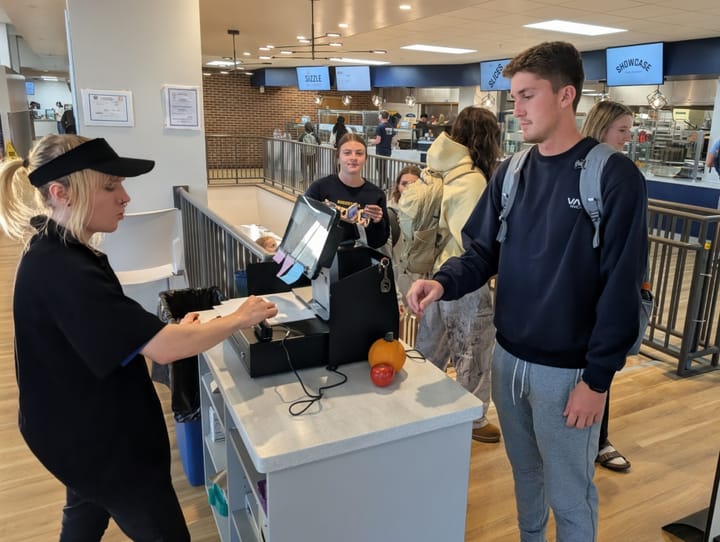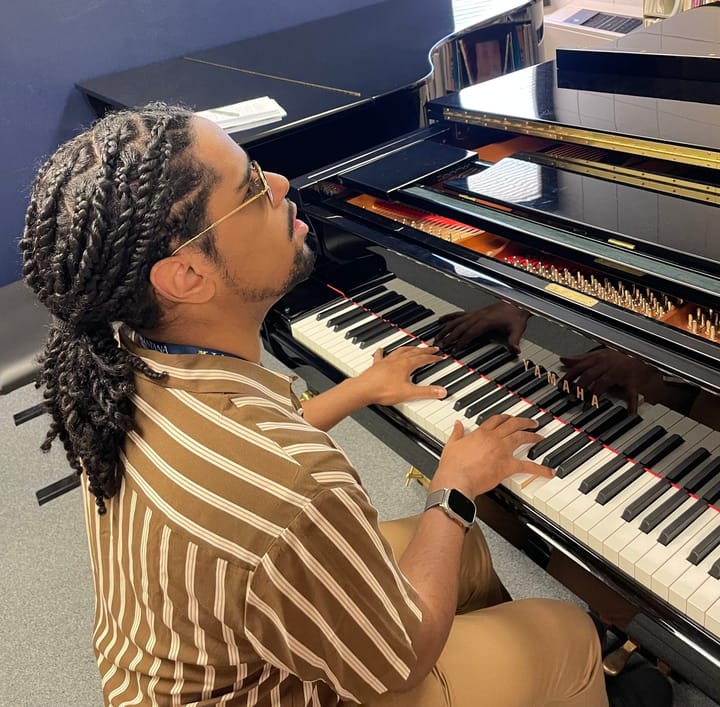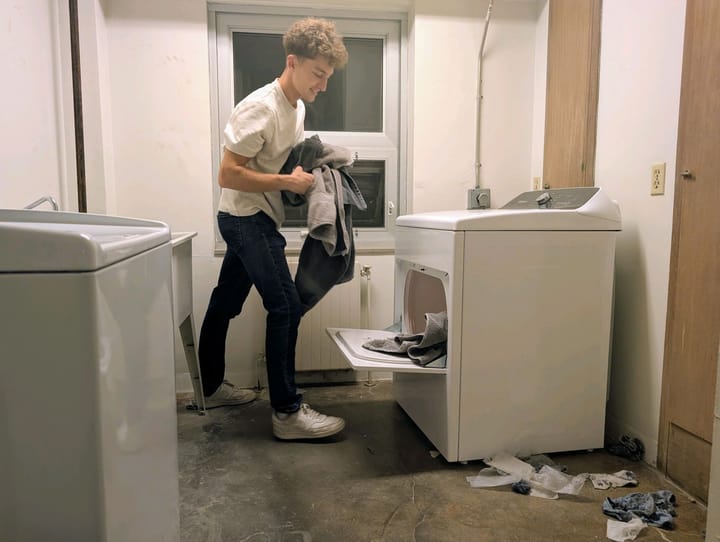International students grapple with limited work opportunities
Augustana students are familiar with the bustling atmosphere of the dining hall. For each meal, Sodexo employees, some of whom are Augustana students, serve hundreds of their classmates. For some of these international students, Sodexo is their only option for employment.
Student employment is often taken for granted by domestic students on campus. Domestic students can apply for whatever work-study position they want, as long as they are qualified.
However, international students are not so lucky. Obstacles such as federal regulations and Augustana’s lack of effort in the past make it difficult for international students to find employment outside of the dining hall.
Federal regulations prohibit international students from working off campus during the first nine months of their schooling, and even when the period of time is over, they are limited to only a position related to their field of study.
The same regulations limit international students from federally funded job opportunities, which make up 61% of the university’s employment positions. These students are not eligible for work study since this type of employment falls under a similar umbrella of federal funds.
A committee was formed earlier last academic year to open up more job opportunities. Spearheaded by Dean of Students Mark Blackburn, the committee was created with an equity-based model for student employment in mind.
By the end of 2020, five new positions open to international students were approved.
The International Programs Office (IPO), the Student Success Center, the Marketing office and the business office will all be hosting a new position for international students as well as a position as the Augustana Research Symposium Site Developer. According to Ben Iverson, the director of international programs and enrollment, these positions will come into fruition during the spring semester.
“There is always room for more, but for right now with what we have we are sitting pretty good,” Blackburn said.
Many students are glad to see progress being made towards more equitable employment on campus, however, there needs to be more work involved.
“I am so excited to see these five positions but the work is not done,” said former ASA Vice President Audrey Cope. “I think the work will be done when the supply equals the demand.”
Uyaruun (Joy) Purevdorj, a senior business administrator and computer information systems major from Mongolia, has worked for by Sodexo since the spring semester of her freshman year. She said she enjoys working there but wishes there could be more opportunities for her to work in positions that give her experience in her field of study.
“I had to literally hunt down what jobs were available myself,” Purevdorj said. “I would ask people, but they usually didn’t know. I wish the university would be more direct with the opportunities that they do have for international students.”
Over the last few years, Purevdorj has worked for Sodexo in the dining hall, SubConnection, and Viking Grounds as well as being a peer navigator for Augie Access students last year. She has worked multiple off-campus internship jobs mostly related to her business management studies.
Transportation to those jobs has been especially difficult for Purevdorj. She said she is lucky to have friends willing to drive her around. However, on many occasions she has had to take an hour bus ride for a distance that would normally take ten minutes.
She said the new Viking Lyft program has helped her to navigate this obstacle better than she was able to before.
Restricting international students to only dining service positions has also led to discriminatory dynamics among students. Former ASA President and recent graduate Luca Amayo was outspoken during his time on campus about the importance of creating more employment opportunities for international students.
“You don’t see your international classmates in the library, in the galleries, in the departments, in the offices, etc.,” Amayo said. “In our current setup, those spaces belong to our white, American classmates. Culturally and socially, serving food is much more a position of subservience in comparison.”
The system denies international students options for on campus employment when they do not have the legal eligibility to work off campus.
“It’s also objectively much more strenuous work, and it is the farthest from reflecting your gifts and talents relative to those other jobs,” Amayo said. “Limiting so many international students to that opportunity is more than discrimination: it’s a poor reflection of our institution that it is often all we have to offer those who have generally give up the most for an Augustana education.”
Iverson said that most international students come to Augustana to further their studies and most would like to have a job that prepares them for a career in their field of interest.
“Most students would like to get direct, professional, applicable experience within their academic discipline or their interest when it comes to employment after college,” Iverson said.
In an IPO survey in which international students were asked what opportunities they would like to have on campus, the results indicated that the students wanted experience in IT and computer science, academic departments and real-world business opportunities, according to Iverson.
Purevdorj wanted to work in the library or IT department when she first came to Augustana. However, she quickly found out that those positions were only available to work-study students.
“I think every student should have the same opportunities and availability,” she said.
International Student ASA Senator Gedion Alemayehu, a double major in mathematics and data science, has also experienced challenges finding employment on campus.
During his freshman year, Alemayehu was only able to work at the dining center, and because his priority was academics, the open positions would not further his academic focus.
His sophomore year, Alemayehu began working for the Writing Center, which is more academically inclined. Along with other international students, Alemayehu began the long process of demanding change within the university.
“Almost every other school we researched, they have figured out a loophole to pay international students,” Alemayehu said. “It’s all about having a separate fund that goes directly to international students.”
In addition to employment opportunities, many students, both international and domestic, expressed concerns about the lack of advertisements for available job positions on campus. To fix the problem, the committee reconstructed the Augie Opportunity website to reach a larger audience. It also allows for a more equitable approach within the hiring process instead of faculty hiring students they already know.
The Black Student Union (BSU) and the African Student Union (ASU) worked to find solutions within the committee to find solutions for the lack of available positions in departments across campus, which included gaining input from international students about the positions they wanted available to them.
Director of Recreational Services Mark Hecht is one of many administrators who are looking for more ways to incorporate international student positions on the Elmen staff.
For Hecht, the main problem has been finding funds in the department’s budget. The Elmen’s Learn to Swim program makes up the majority of its budget. Unfortunately, the pandemic only allowed a limited amount of lessons and has caused a massive deficit for the department.
Aside from the budget, Hecht has been working on internal leadership positions for international students. He wants to create a mentoring environment that specifically encourages international students to apply for these leadership roles.
“[International student employment] is an area where I’d really like to see us make more progress,” Hecht said. “It’s been slow. There are things internally that we have learned and that we are focused on doing better.”
Alemayehu said he is frustrated with the Augustana administration’s lack of initiative for its students’ concerns and that budgeting should not be an issue. According to Alemayehu, prioritizing funds is to the university’s advantage because it is to the advantage of Augustana students.
Amayo also believes that more needs to be done to provide international students with work experience.
“Augie may be South Dakota’s premier university, but a nexus of structural problems hamper its progress in diversity,” Amayo said. “Our urgency needs to match our rhetoric if our university will ever live up to the promise it makes to every one of the students seeking a place here.”



